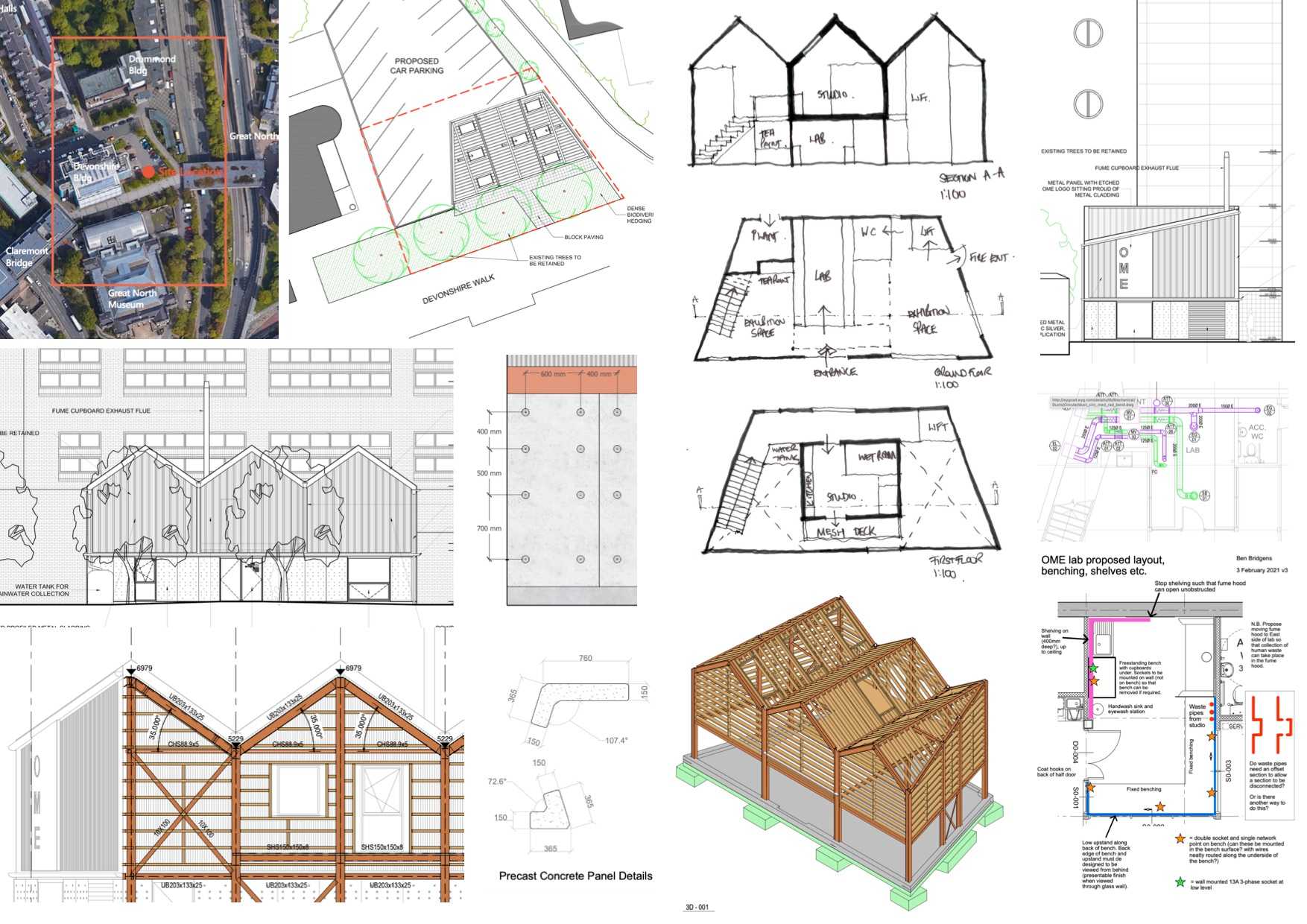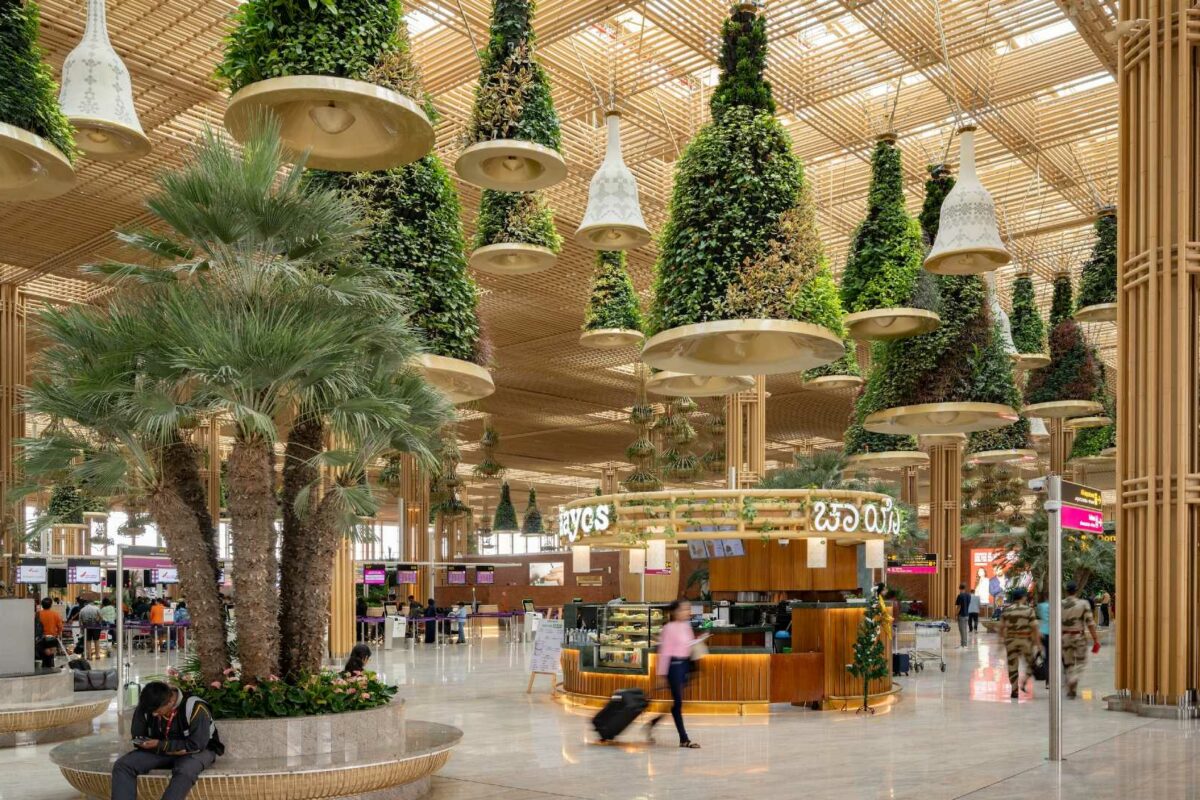Work has started on the construction of an experimental biological house which will form a key part of the £8m Hub for Biotechnology in the Built Environment (HBBE).
A joint initiative between Newcastle and Northumbria Universities, the HBBE is creatively harnessing biotechnology to develop a new generation of sustainable living buildings.
The OME, sited next to the Devonshire Building on Newcastle University’s campus, will enable HBBE’s researchers to collaborate with industry stakeholders on diverse approaches to incorporating biotechnology in the built environment, creating self-sustaining, regenerative, living buildings which benefit human and ecological health and wellbeing.
Construction is expected to be completed in Spring 2021.
Central to the OME will be a self-contained apartment which will allow HBBE experts to test and demonstrate these new biotechnologies in a domestic setting. We will be testing a wide range of technologies from new materials grown from microbes through to waste systems which generate power from the output of the toilet. The microbial life (microbiome) within the apartment will be studied to better understand the influence of materials, surfaces and ventilation systems on the microbes which surround us – both to avoid harmful organisms and even viruses such as Covid-19, and to encourage healthy bacteria that benefit human health.
The exterior of the building has been designed so experimental material samples can be easily installed for testing and whole sections of the internal and external walls can be replaced with new forms of construction.
The apartment will sit above a laboratory, where processes will be developed to convert domestic waste including human waste, food waste, cardboard and plastics, into fuel, electricity, and other useful products. The building also includes a prototyping and exhibition space, where designers, architects, engineers and microbiologists can work together to create large scale installations to demonstrate how their research can be applied at full scale within buildings.
Professor Martyn Dade-Robertson, Co- Director of the HBBE at Newcastle University, explained: “There is nothing quite like the OME anywhere in the world. The building will create a space to develop technologies which are well beyond the state-of-the-art. The OME puts the North East at the heart of a new field of research and potentially a new industry.”
Professor Gary Black, Co-Director of the HBBE at Northumbria University, commented: “The OME embodies the HBBE’s research approach to harbour collaboration and build long-lasting research links between Northumbria and Newcastle Universities It will allow us to apply the biotechnologies we are developing in a real-life situation rather than in the lab alone.”

Content Team
Work in Mind is a content platform designed to give a voice to thinkers, businesses, journalists and regulatory bodies in the field of healthy buildings.




